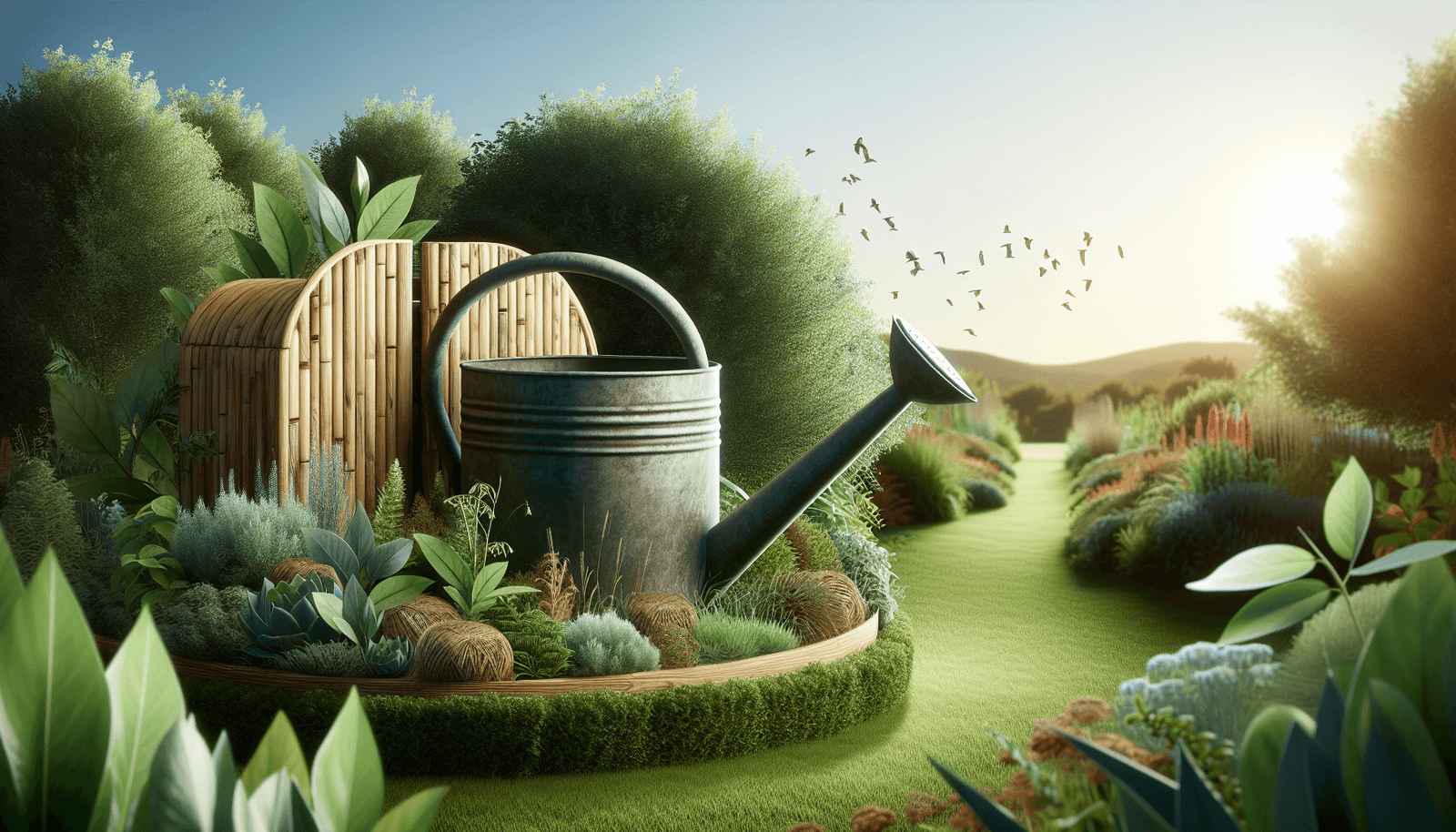Are you looking for ways to create a beautiful and environmentally-friendly landscape? Look no further than these eco-friendly solutions for sustainable landscaping. This article will provide you with practical tips and ideas on how to design and maintain a low-impact garden that both benefits the planet and enhances the beauty of your outdoor space. From using native plants and organic fertilizers to implementing water-saving techniques, you’ll discover a range of innovative practices that will help you create a sustainable landscape that you can be proud of. It’s time to transform your garden into a green oasis!
Benefits of Sustainable Landscaping
Sustainable landscaping offers numerous benefits for both you and the environment. By implementing eco-friendly practices, you can make a positive impact on water usage, energy consumption, air quality, maintenance requirements, and biodiversity in your outdoor space.
Reduced water usage
One of the key benefits of sustainable landscaping is its ability to reduce water usage. By incorporating water conservation techniques into your landscape design, such as rainwater harvesting, drip irrigation, xeriscaping, mulching, and smart irrigation systems, you can significantly decrease the amount of water needed to maintain a lush and vibrant garden. This not only helps to conserve a precious resource, but it also reduces your water bills and contributes to a more sustainable future.
Energy conservation
Another significant advantage of sustainable landscaping is energy conservation. By adopting energy-efficient practices, you can minimize energy consumption and lower your utility bills. Some effective strategies include using native plants that are adapted to the local climate, properly placing trees to provide shade and wind barriers, installing green roofs to insulate buildings, and utilizing solar-powered lighting systems. These initiatives not only benefit the environment but also create a more comfortable and energy-efficient outdoor living space for you to enjoy.
Improved air quality
Sustainable landscaping can have a positive impact on air quality by reducing pollution and increasing oxygen production. Native plants are excellent choices as they require less water, fertilizers, and pesticides, consequently reducing the release of harmful chemicals into the environment. Furthermore, the strategic placement of trees and the creation of green spaces enhance air quality by absorbing carbon dioxide and releasing oxygen. By incorporating these practices into your landscape design, you can contribute to cleaner and healthier air in your community.
Reduced maintenance requirements
One of the advantages of sustainable landscaping is its ability to minimize maintenance requirements. By selecting low-maintenance plants that are well-suited to the local climate, you can reduce the time, effort, and resources needed to care for your garden. Additionally, implementing natural weed control methods, such as manual weeding or the use of biodegradable weed control products, eliminates the need for chemical herbicides. This not only saves you time and money but also reduces the negative impact of chemical inputs on the environment.
Enhanced biodiversity
Sustainable landscaping plays a crucial role in preserving and enhancing biodiversity. By selecting native plants, you can provide habitat and food sources for local wildlife, including birds, butterflies, and bees. Creating wildlife-friendly landscapes with features like ponds, water features, bird feeders, and shelters further encourages the presence of diverse species. By fostering biodiversity, you not only contribute to the overall health of ecosystems but also enjoy the beauty of nature’s intricate web of life right in your own backyard.

Water Conservation Techniques
Conserving water is a fundamental aspect of sustainable landscaping. By implementing various water conservation techniques, you can reduce your water consumption and preserve this vital resource.
Rainwater harvesting
Rainwater harvesting involves collecting and storing rainwater for future use in your landscape. This technique reduces reliance on municipal water sources and provides an additional supply of water during dry periods. Rain barrels and cisterns are commonly used to capture rainwater and can be easily integrated into any landscape design.
Drip irrigation
Drip irrigation is a highly efficient watering method that delivers water directly to the root zone of plants. This targeted approach ensures minimal water wastage and promotes healthier plant growth. Drip irrigation systems can be easily installed and can be automated to provide precise and timed watering, further optimizing water usage.
Xeriscaping
Xeriscaping is a landscaping technique that emphasizes the use of drought-tolerant plants and efficient irrigation systems. By selecting plants that are adapted to the local climate and soil conditions, you can significantly reduce the need for supplemental watering. Xeriscaping also incorporates mulching and proper soil preparation to retain moisture and minimize water loss through evaporation.
Mulching
Mulching involves applying a layer of organic or inorganic material to the soil surface surrounding plants. Mulch helps to conserve soil moisture by reducing evaporation, suppressing weed growth, and regulating soil temperature. Organic mulches, such as wood chips or straw, also enrich the soil as they break down over time.
Smart irrigation systems
Smart irrigation systems are equipped with sensors and weather data to automatically adjust watering schedules based on current weather conditions. By utilizing real-time information, these systems optimize water usage and prevent overwatering. Some smart irrigation systems can also be controlled remotely through smartphone apps, allowing you to monitor and adjust watering patterns from anywhere.
Implementing these water conservation techniques in your landscape not only helps to conserve water but also promotes healthier plants and reduces water bills.



